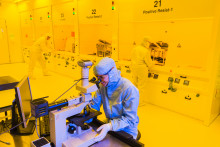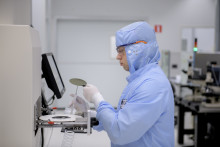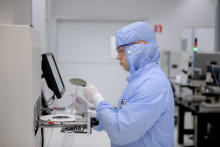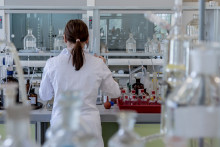What is Open Science Week?
‘A week full of workshops and knowledge sessions in which we explore how science can be made more accessible. That means panel discussions, interviews with several deans and vice-deans, brainstorming sessions, mini-lectures, and workshops. Topics include publishing in multiple languages, publishing research in more interactive ways, but also data sharing and citizen participation. Pretty much all Dutch universities are involved in the initiative, so you can also choose to attend lectures at other institutions.’
Why Open Science Week?
‘We work with public money, so citizens have the right to access. But science often still means publishing articles in journals that sit behind a paywall. That blocks open communication and slows everything down. What is more, the journals make money while, figuratively speaking, the scientist does all the work. This week we will look at how things can be done differently.’
Why is that important?
‘It is important that we open our doors to speed up research and exchange, and to allow knowledge to grow in ways that were previously impossible. If you keep everything to yourself, no one else benefits and the world gains nothing. Through continuous exchange we also find out more quickly whether something has already been studied, and we can build on that.’
There is a lot of concern these days about knowledge falling into the wrong hands. What about knowledge security?
‘I think you have to assess it case by case. Very few scientists deliberately develop technology for military purposes. And even in a closed system, someone with the right means and bad intentions can access research. That is virtually impossible to prevent.
‘By opening everything up, countermeasures against such malicious practices can also be taken more quickly. There is no standard solution. The Dutch Code of Conduct for Scientific Integrity prescribes openness anyway.’
How many registrations do you have so far?
‘That is hard to say, because everything is freely accessible. For the opening event we now have about 30 registrations. For the workshops we expect an average of ten participants. We hope that word spreads and that more people eventually decide to come along.’







